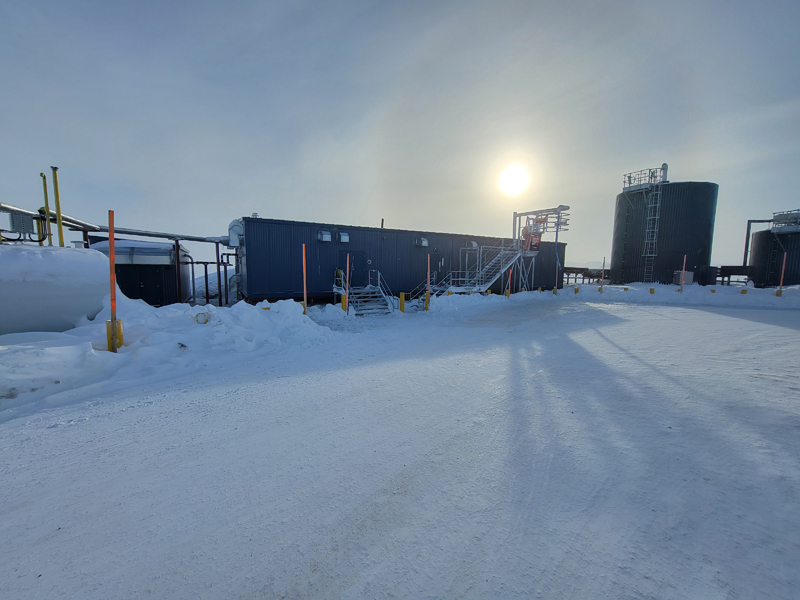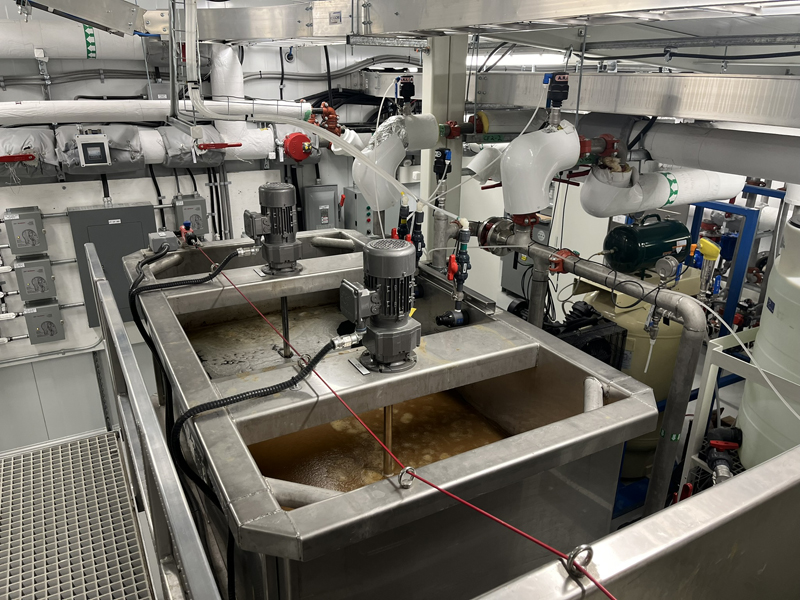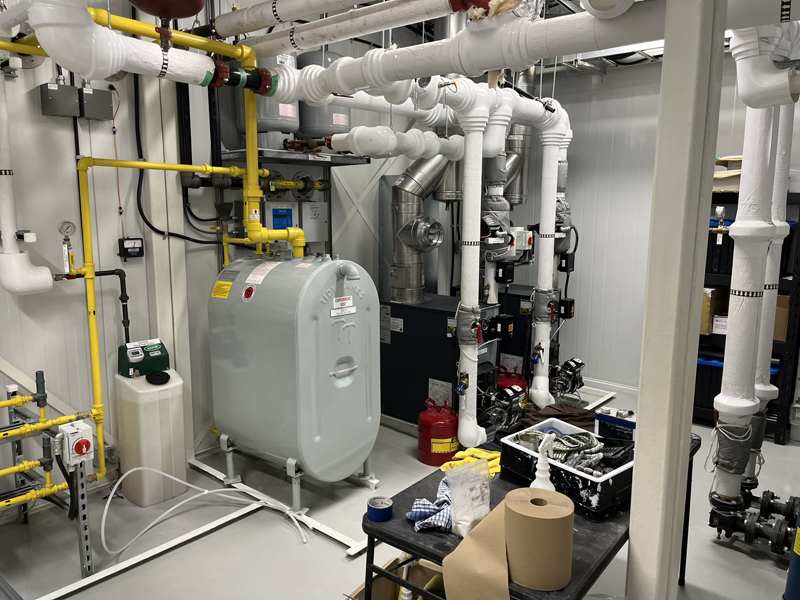Projects
Whale Cove Water Treatment Plant – Whale Cove, NU
Water treatment systems in several Northern and First Nation communities do not meet Health Canada’s Guidelines for Canadian Drinking Water Quality. The Government of Nunavut (GN) had identified a key goal of upgrading aging water systems with new modern equipment and supporting infrastructure that would provide safe and acceptable drinking water to local communities while supporting operator development.
In 2019 Dillon, in collaboration with the GN, developed a Standardized Water Treatment Train (SWTT) that could be deployed to multiple communities in Nunavut to meet Federal Health Canada guidelines, and provide a consistent platform across multiple communities such that operator training and support is strengthened. It had the added benefit of optimizing maintenance support and troubleshooting by providing similar equipment in new facilities. Whale Cove was the first community to implement the SWTT approach, and their new water treatment plant (WTP) was commissioned in early 2024.
Whale Cove is located on the west side of Hudson Bay, south of Rankin Inlet. Approximately 500 people reside there, and the community has experienced long-term boil water advisories for many years. A temporary and portable water treatment system was implemented as an interim measure to meet Federal guidelines; however, it operated at a reduced capacity compared to community demand, and was not winterized meaning it was only operated seasonally.
The project began in 2018 and consisted of a complete replacement of the existing water supply infrastructure, including rehabilitation of the existing lake intake and installation of a second new redundant intake. New treated water and wastewater storage tanks were installed, and a new modular treatment building was constructed in a single construction season. The treatment process consists of intake screens and pumps (in lake), coarse basket strainers, enhanced coagulation, dissolved air flotation (DAF), ultrafiltration membranes, UV disinfection and associated chemical feed systems (soda ash, coagulant, polymer, sodium hypochlorite). The plant was also designed with the ability for fluoridation to be added in the future, if requested by the community.
The new plant was designed to meet Health Canada’s stringent turbidity and disinfection performance requirements, and control of disinfection byproducts by removal of dissolved organics upstream of chlorine disinfection.
The project had an expedited timeline due to the nature of the temporary existing system, and to ensure safe drinking water and fire protection was provided to the community. The project team was also given the task to maintain water deliveries to the community throughout the construction period, improve building energy efficiency, provide redundancy and backup on all critical systems, modernize the SCADA system, be operator-friendly, and provide safe and reliable drinking water for 20+ years.
The treatment plant was chosen to be modular, requiring considerable attention to design details and how the numerous sections could be quickly and reliably re-connected onsite. Special attention was given to the architectural and structural connections of each module, to ensure weatherproofing. Electrical and controls interconnections between the building modules allowed for quick and efficient disassembly after factory testing, and reassembly at site.
Following completion of the project, a formal round table was held with all project partners to identify aspects that went very well and should be repeated, along with those that could be improved for future projects. Subsequent to the successful deployment of the SWTT process at Whale Cove, new water treatment projects that use the SWTT process are being planned for the communities of Arctic Bay, Pond Inlet, Rankin Inlet, Clyde River, Igloolik, and Sanikiluaq.
The delivery of this project has greatly helped the lives of the individuals in this remote community by providing reliable access to clean and safe drinking water, and eliminating the need for boil water advisories. This project not only meets or exceeds Federal and Territorial guidelines but also promotes the health and well-being of the community, reducing the risk of waterborne diseases and enhancing overall quality of life. This project demonstrates the profound impact that engineering can have on enhancing the quality of life in remote areas, where standardized solutions can improve the delivery of safe and reliable potable water.
Awards
- Award of Merit, Northwest Territories and Nunavut Association of Professional Engineers and Geoscientists, 2025
Project Details
Project Partner: Government of Nunavut
Business Unit: Community Planning & Infrastructure
Service Offering: Treatment and Pumping


